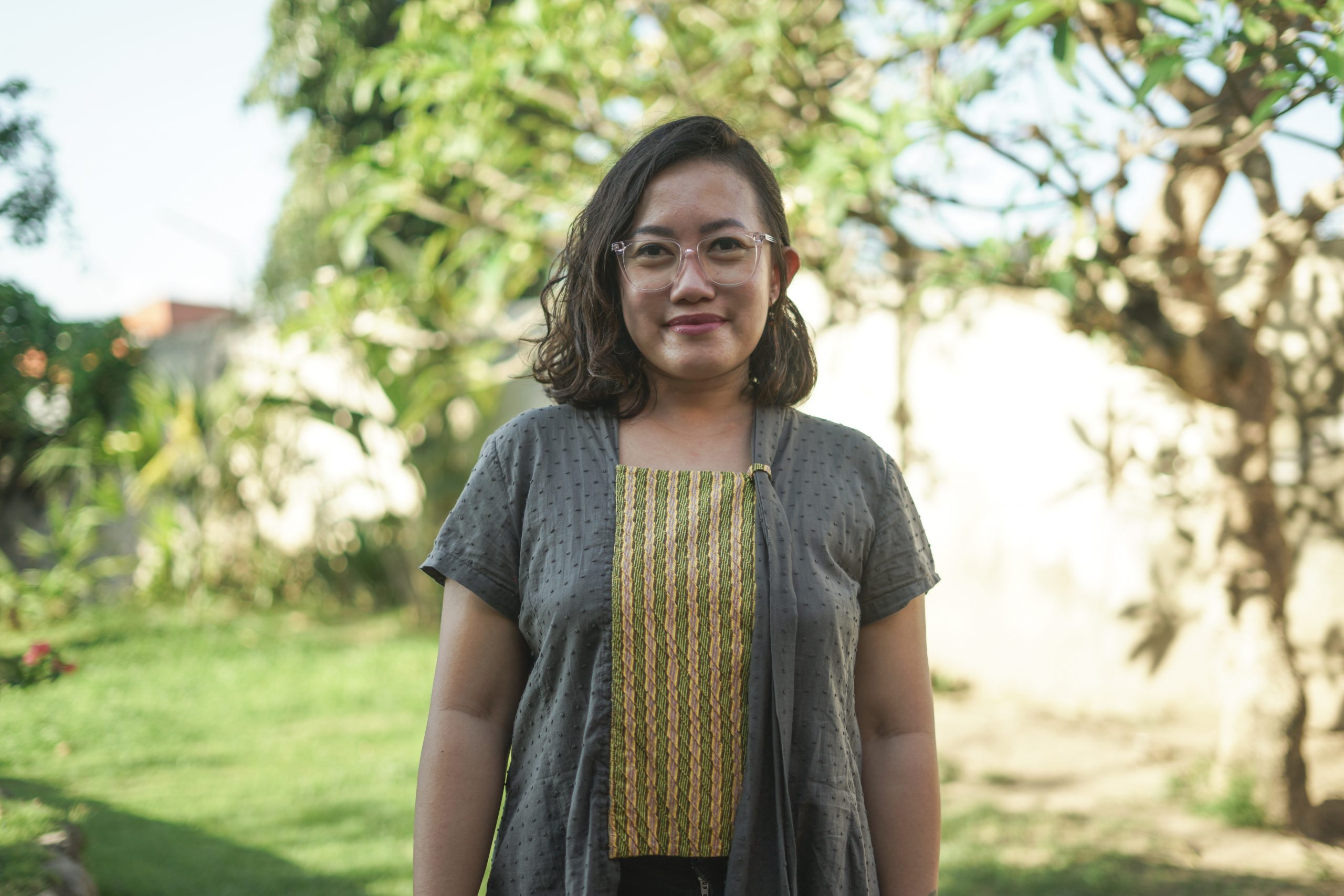CEO and Founder of TinkerSpace
Citra innovates within the social enterprise sphere with a strong commitment to solving gender inequality. Operating from Bali, Citra fills the gap of knowledge and helps others scale impact.
Citra does not follow the crowd. Born and raised in a middle working class family, she has always felt like she had an unconventional career progression.
Citra’s professional life began in the marketing and advertising industry. In 2012, she moved to Singapore to work at a global brand services enterprise. The experience of working abroad suddenly removed all the boxes enclosing her worldview and boosted her confidence. Citra had always felt her local degree was inferior since Indonesia’s working culture was still favouring overseas graduates. Over time, she realized the mentality could be a barrier for a lot of people.
From Singapore, Citra moved to Bali to work at a nonprofit organization on poverty solutions for remote communities in Indonesia. She continued her journey with other social impact-oriented enterprises until founding TinkerSpace in 2019.
TinkerSpace was first established as a social enterprise supporting other social enterprises working with women, differently abled people, and village communities. In its first year, TinkerSpace ran internships, volunteering programs, and social enterprise experience trips.
As Citra developed programs catering to women entrepreneurs in Bali, she became aware of the specific challenges they encounter. Women find it easier to doubt themselves.
“When you grow up in a patriarchal society and are constantly being made to question your capability to start something or to excel professionally, it’s harder for you to be confident with what you can achieve, [and] to believe in yourself,” Citra says.
This reflection led TinkerSpace to pivot in 2020. The new TinkerSpace puts key emphasis on providing branding and marketing services, as well as training, to ensure clients – who are mostly women and social entrepreneurs – can implement and maintain the marketing and branding assets themselves instead of relying on others.
To further help women founders, Citra initiated a Women Founders Circle – a safe space where women could share their unique sets of challenges and support each other.
Citra is also working on a social venture pilot aimed to source, train, and protect women domestic workers. It started from Citra’s own struggle to find a house assistant and her concerns over safety and abuse.
Citra’s solution would include recruiting, vetting, and training the helpers ensuring they get better salaries over time as their skills increase, and would also function as an intermediary to ensure satisfaction of employers, but also safety of the helpers. Citra hopes it would restore dignity to the profession often taken up by women from low income families. Her challenge now is to find funding.
“It’s a business where you are going to be engaging with vulnerable women from lower income communities. That’s why I need to fundraise even before starting, instead of trying to bootstrap the idea, because I can’t just abandon the women if I run out of funds in the middle of it,” Citra says.
Citra says that for GLI to deepen its reach in the social entrepreneurship sector, it will need to have more women-focussed enablers. At the moment, the majority of the current existing enablers cater only to tech entrepreneurs. Social entrepreneurs, regardless of gender, have a different mindset and focus compared to other startup founders. For one, they deal with vulnerable communities. There is not yet a visible support system for social enterprises focusing on women as their beneficiaries.
Women experience and perceive the world differently than men. This is why solutions designed and proposed by women entrepreneurs might work better for women beneficiaries. It also means women investors might have better insight on the potential of such solutions. However, meeting women who are interested in investing is not easy.
These factors make it harder for women social entrepreneurs to advance, especially for those offering solutions for women. While Citra understands the need for having a proven concept and business model to receive investment, she also believes that a lot more women-focussed solutions may come true if women social venture founders had more opportunities to connect and be mentored by women investors.
“As a founder, it’s important to have somebody who also believes in the idea, in the significance and potential of the solution to solve real problems, and willing to invest in trying out the solution,” Citra highlights.
Citra believes women-centered enablers will not only empower women entrepreneurs, but also benefit women in vulnerable communities.
Citra’s efforts at TinkerSpace show that innovations within the social enterprise sector are urgently needed and could directly align with GLI.





